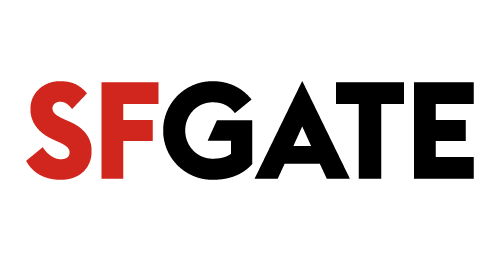Activists' 'True Cost' report takes on Chevron


Photo: Mike Kepka / The Chronicle
Two days before the start of the annual Chevron shareholders meeting, Thomas Cavanagh, Amanda Fiore and Matt Leonard, activists with the Rainforest Action Network drop a 30’x50′ banner on the side of the Richmond San Rafael Bridge that accuses the company of wrong doing in the Amazaon, on Monday May 23, 2011 in Richmond, Calif.
With Chevron Corp. set to hold its annual shareholder meeting this morning, a global network of the company’s critics on Tuesday released a report accusing the oil giant of environmental crimes around the world.
This marks the third year in a row that the activists have released “The True Cost of Chevron,” a glossy booklet that mimics the style of an annual corporate report but thrashes the company rather than praises it. Chevron’s former chief executive, David O’Reilly, memorably said the first “True Cost” report should be tossed in the trash, and a company spokesman on Tuesday compared the latest edition to a funhouse mirror.
Since the first “True Cost” report, some of the groups involved have scored victories against the oil company, America’s second largest.
Bay Area activists who opposed an upgrade to the company’s Richmond refinery persuaded a judge to halt the project, prompting Chevron to revamp its plans and submit a new application to the city for approval. And in Ecuador, a judge fined the company $9.5 billion over oil field pollution in the Amazon rain forest, an amount that could rise to $18 billion if the company doesn’t apologize for its actions. The company has appealed the judgment and is fighting hard to prove that the verdict was the result of judicial fraud. Both the Richmond refinery project and the Ecuador trial are highlighted in the report.
“As this network grows stronger, we expect to see more of these local successes unfold,” said Antonia Juhasz, the report’s lead author.
The True Cost network, which now includes more than 40 groups, aims to give people in different states and countries support fighting a company that shows little regard for the environment or human rights, she said. A news conference Tuesday morning touting the report brought together on a San Francisco street corner people from Angola, Canada, Ecuador, Indonesia and Nigeria.
“For local communities to go up against that powerhouse, it’s very difficult to do that individually,” Juhasz said.
San Ramon’s Chevron views the report as part of a smear campaign against the company. The company’s own annual “Corporate Responsibility Report” details investments that Chevron makes in health, education and economic development projects in the communities where it works – investments that totaled $197 million in 2010. Projects included providing vaccinations in Angola and micro-financing for small-town businesses in Indonesia.
“Chevron is proud of the significant contributions we make to the communities where we operate by providing jobs, reliable energy and strategic social investments,” said company spokesman Morgan Crinklaw. “We do all this with an unwavering focus on safety.”
Chevron also questioned the accuracy of the “True Cost” report. Chevron hired a consulting firm to review the reporting processes used to compile the company’s own Corporate Responsibility Report, said spokesman Lloyd Avram. The True Cost network, he said, didn’t take that step.
“The lion’s share of this report was not verified by anybody,” Avram said. “This report has all the accuracy of a funhouse mirror.”
Some of the activists who contributed to the “True Cost” report acknowledge the company’s humanitarian efforts. But they say they’d rather see the company change its underlying practices.
“No one’s saying these things are not positive,” said Paul Donowitz of EarthRights International. His organization has been critical of Chevron’s investment in a natural gas project in Burma, a project that provides income to a government often accused of violating civil rights.
“You can’t offset human rights abuses with a school,” Donowitz said. “That’s not how it works.”
